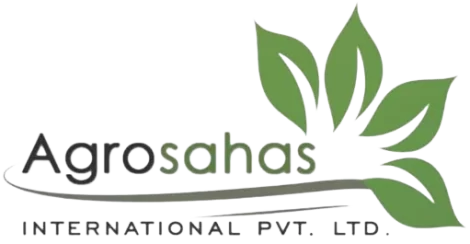In the realm of agricultural development, policy plays a crucial role in shaping the strategies that drive growth, sustainability, and innovation. At Agrosahas International PVT LTD, we are committed to advocating for policy changes that can enhance agricultural practices and improve livelihoods in Uganda. This blog explores the role of policy in agriculture, current agricultural policies in Uganda, the 2024 agriculture policy, and the government agencies involved in promoting agricultural growth and development.
What is the Role of Policy in Developing Agriculture?
Agricultural policies are essential for providing a framework that guides the sector’s growth and development. They encompass various aspects, including land use, crop production, animal husbandry, food security, and rural development. The key roles of policy in developing agriculture include:
- Regulation and Standards: Policies establish regulations and standards that ensure safe and sustainable agricultural practices. This includes guidelines on pesticide use, animal welfare, and food safety.
- Support and Subsidies: Governments often provide financial support and subsidies to farmers to help them manage risks, invest in new technologies, and improve productivity.
- Research and Innovation: Agricultural policies promote research and development in farming techniques, crop varieties, and technologies that can boost yields and sustainability.
- Market Access: Policies facilitate access to domestic and international markets, helping farmers sell their produce at fair prices and encouraging trade.
- Infrastructure Development: Investment in infrastructure such as roads, storage facilities, and irrigation systems is driven by agricultural policies, enhancing the efficiency of the agricultural value chain.
- Rural Development: Policies aim to improve the quality of life in rural areas through better education, healthcare, and social services, contributing to overall agricultural development.

What are the Agricultural Policies in Uganda?
Uganda’s agricultural policies are designed to support the sector’s growth and address challenges faced by farmers. Key policies include:
- The National Agriculture Policy (NAP): The NAP provides a comprehensive framework for the agricultural sector’s development. It focuses on increasing agricultural productivity, ensuring food and nutrition security, and promoting sustainable land and water management.
- The National Agricultural Extension Policy (NAEP): This policy aims to strengthen the agricultural extension system, ensuring that farmers receive timely and relevant information, training, and support to improve their farming practices.
- The Agriculture Sector Strategic Plan (ASSP): The ASSP outlines the government’s priorities and strategies for the agricultural sector over a five-year period. It focuses on enhancing agricultural productivity, value addition, market access, and institutional development.
- The National Seed Policy: This policy aims to improve the availability and quality of seeds in Uganda. It promotes the development of a competitive seed industry and ensures that farmers have access to high-quality seeds.
What is the Agriculture Policy of Uganda 2024?
The Agriculture Policy of Uganda 2024 is expected to build on the foundations laid by previous policies while addressing emerging challenges and opportunities in the sector. Key focus areas of the 2024 policy include:
- Climate-Smart Agriculture: Emphasizing the adoption of climate-smart agricultural practices to mitigate the impacts of climate change and enhance resilience.
- Digital Agriculture: Promoting the use of digital technologies to improve agricultural practices, market access, and financial inclusion for farmers.
- Youth and Women Empowerment: Enhancing the participation of youth and women in agriculture through targeted support and capacity-building programs.
- Value Chain Development: Strengthening agricultural value chains to improve efficiency, reduce post-harvest losses, and increase value addition.
- Sustainable Land Management: Promoting sustainable land use practices to prevent land degradation and ensure the long-term productivity of agricultural land.
What is the Government Agency Involved in the Promotion of Agricultural Growth and Development in Uganda?
The Ministry of Agriculture, Animal Industry, and Fisheries (MAAIF) is the primary government agency responsible for promoting agricultural growth and development in Uganda. MAAIF oversees the formulation and implementation of agricultural policies, programs, and projects. Key functions of MAAIF include:
- Policy Formulation and Implementation: Developing and implementing policies that support agricultural development, food security, and rural livelihoods.
- Research and Extension Services: Supporting agricultural research institutions and extension services to provide farmers with the knowledge and tools they need to improve their productivity.
- Regulation and Standards: Ensuring that agricultural practices meet national and international standards for safety, quality, and sustainability.
- Support Services: Providing financial support, subsidies, and technical assistance to farmers to enhance their production capabilities.
- Market Access and Trade: Facilitating access to domestic and international markets for Ugandan agricultural products, and promoting agricultural trade.

Agrosahas’ Advocacy for Policy Change
At Agrosahas International PVT LTD, we recognize the importance of effective agricultural policies in driving sector growth and development. Our advocacy efforts focus on the following areas:
- Engaging with Policymakers: We actively engage with policymakers to advocate for policies that support sustainable agricultural practices, enhance market access, and improve the livelihoods of farmers.
- Collaborating with Stakeholders: We collaborate with various stakeholders, including farmers’ associations, NGOs, and research institutions, to develop and promote evidence-based policy recommendations.
- Raising Awareness: We conduct awareness campaigns and workshops to educate farmers and the general public about the importance of supportive agricultural policies and how they can contribute to policy development.
- Supporting Research: We support agricultural research initiatives that generate data and insights to inform policy decisions and improve agricultural practices.
Conclusion
Effective agricultural policies are crucial for the sustainable development of the agricultural sector. In Uganda, policies such as the National Agriculture Policy, the National Agricultural Extension Policy, and the Agriculture Sector Strategic Plan play a vital role in supporting farmers and promoting sector growth. At Agrosahas International PVT LTD, we are committed to advocating for policy changes that enhance agricultural development strategies and improve the livelihoods of farmers. By working together with policymakers, stakeholders, and the farming community, we aim to create a supportive environment for sustainable agricultural growth in Uganda.




